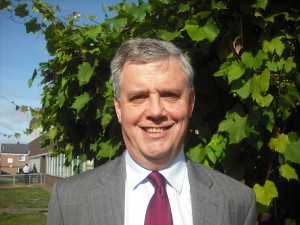
Dr Sean Elyan
Medical Director, Gloucester Hospitals NHS Foundation Trust
Trustee, The Point of Care Foundation
Dr Sean Elyan describes undertaking a listening exercise with staff following the publication of the Francis report, at Gloucestershire Hospitals NHS Foundation Trust.
The Director of Nursing and I did this work so I was slightly affronted when a senior nursing colleague claimed that compassionate care was the responsibility of the nursing body and doctors should not be interfering. Preparing myself to respond intelligently when next challenged in this way, I thought I would assess what emphasis was afforded to different groups in the Mid Staffordshire report. I was reassured to find that the executive summary says: ‘[Patients] must receive effective services from caring, compassionate and committed staff, working within a common culture’. However it would be wrong not to acknowledge that the summary mentions compassion 16 times and of these, 11 relate directly to nursing and only five could be considered to include other staff groups.
Within our trust we have started a project, initially with The King’s Fund and now with The Point of Care Foundation, to test and disseminate an approach to strengthening relationships between staff and patients. These Schwartz Center Rounds, adopted from an innovative approach now used in many hospitals in America, have been revealing. Staff from any discipline use narrative to relate the challenge of providing care from their own perspective. This reflective practice, unusual because it takes place in a multi-disciplinary forum, is followed by a facilitated discussion encouraging the audience to relay similar examples that resonate with the case they have just heard. The discussions regularly and rapidly get to the heart of the complex web of tensions that suffuse care as it is provided on a daily basis. Ranging from the distress felt by staff following failed paediatric resuscitation, through the impossible pressures of a surgeon’s busiest day, to the observations of a bed manager trying to navigate a patient within a system of increasing demand and expectation, these sessions more than any other I have witnessed reveal how difficult our daily job is. I regularly walk away from them as the clinical lead humbled by the commitment and skill shown by healthcare assistants, physiotherapists, secretaries and porters not to mention nurses and doctors. And within this is a clarity that these sessions are not to find solutions but just to talk and have time to share, and to recognise that as healthcare staff we all experience similar situations and emotions. They consistently demonstrate that when staff hear a senior colleague reveal how difficult they personally found dealing with a particular situation, or confirm that they have also experienced something which another member of staff has described, they find it incredibly empowering and supportive. I can honestly say that of all the tasks I undertake in the trust, this monthly hour is the most productive and invigorating.
The Schwartz Center Round methodology requires a doctor from the trust to act as clinical lead, championing the process and working with a trained facilitator to help plan and run the sessions. By getting a doctor to act as clinical lead, it acknowledges that caring is not just ‘nurses’ work’ and helps to ensure that doctors attend the sessions along with colleagues from other disciplines.
So as I muse on another section of the Francis report in which there is a call to arms to introduce an ‘aptitude test for compassion and caring’ I think to myself ‘what would this test look like?’ We have recently introduced a question into our consultant interviews asking for candidates to give examples of an action at work they have taken that reveals them to be a particularly compassionate doctor. Their answers seem to range from what I would consider normal day to day work to genuine and moving illustrations of an exemplar approach. The Schwartz Center Rounds give a tantalising glimpse into compassionate care and how to recognise it. For something that seems so easy to identify in these session, it remains unclear to me how to measure it. However, I for one would wholeheartedly endorse Robert Francis’ challenge, beseeching us to start exploring ways to do so. If we can develop a measure for compassion, I hope we find doctors as capable of this work as nurses or any other staff group.